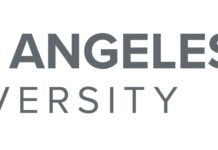New Study Finds Balance Not Bias At Venezuela’s Globovision
Center for Latin American and Latino Studies at American University Releases
Analysis of Venezuela’s Globovisión
WASHINGTON, May 19, 2015 /PRNewswire-HISPANIC PR WIRE/ — American University’s Center for Latin American and Latino Studies (CLALS) study Bias or Neutrality? An Assessment of Television News Coverage in Venezuela by Globovisión shows that even amidst Venezuela’s stringent press regulations, the television news network, Globovisión, has “no significant bias in favor of the government or the opposition.” The independent study was released in full today at the National Press Club in Washington, D.C.
CLALS’ director Eric Hershberg and his team of research fellows Michael McCarthy and Michael Danielson, who are experts in Venezuela and its politics and Latin American politics and quantitative analysis respectively, and doctoral candidate Paula Orlando, an expert in media analysis, carried out the rigorous examination covering the polarized time period from the fall of 2013 through the summer of 2014.
Globovisión commissioned this independent study from CLALS to examine the network’s content. The final study was the result of a six-month study undertaken to review the network’s news coverage since it changed ownership in 2013.
The 61 page study analyzed three central questions:
- Does Globovisión provide regular and fair coverage and airtime of the opposition in Venezuela re: stories, policies and interviews?
- Does Globovisión provide coverage that presents the government in a negative light or holds it accountable?
- Is there balance in the airtime afforded to opposition and government coverage?
Through its application of quantitative and qualitative analysis, the researchers examined 88 hours of Globovisión’s primary weekday and weekend evening news programs that aired over four distinct periods of time identified as “critical junctures”. They included the 2013 municipal elections, opposition street demonstrations in early 2014, international efforts to convene talks between the government and opposition in the spring of 2014, and the shortages of basic goods during the summer of 2014.
The team reviewed several hundred news stories and interviews during the time period featuring more than 1000 individuals and the discussion of 36 topics. Specifically, the CLALS team compared coverage of news events across multiple days, assessing bias, tone and editorial approach for Globovisión’s flagship program Noticias Estelar (nightly) and Noticias Globovisión (weekend). Five themes were considered: economy, politics, security situation, student protests, and “other” (one-off stories such as road closures, entertainment, sports, natural disasters, etc.)
The study does note with concern that Globovisión during the time period studied had not given the attention to the jailing of opposition leader Leopoldo Lopez that international outlets such as CNN in Spanish or NTN24 have given to the story.
Overall, the study states, however, that Globovisión “covered the most important issues and problems facing the country.” Shifting away from the previous ownership’s overtly pro-opposition perspective, the study establishes that Globovisión under present ownership provided balanced coverage of the issues facing Venezuela today.
The Center for Latin American and Latino Studies (CLALS) at American University, established in January 2010, is a campus-wide initiative advancing and disseminating the state-of-the-art research. The Center’s faculty affiliates and partners are at the forefront of efforts to understand economic development, democratic governance, cultural diversity and change, peace and diplomacy, health, education and environmental well-being. CLALS generates high-quality, timely analysis on these and other issues in partnership with researchers and practitioners from AU and beyond.
American University is a leader in global education, enrolling a diverse student body from throughout the United States and nearly 140 countries. Located in Washington, D.C., the university provides opportunities for academic excellence, public service, and internships in the nation’s capital and around the world.






